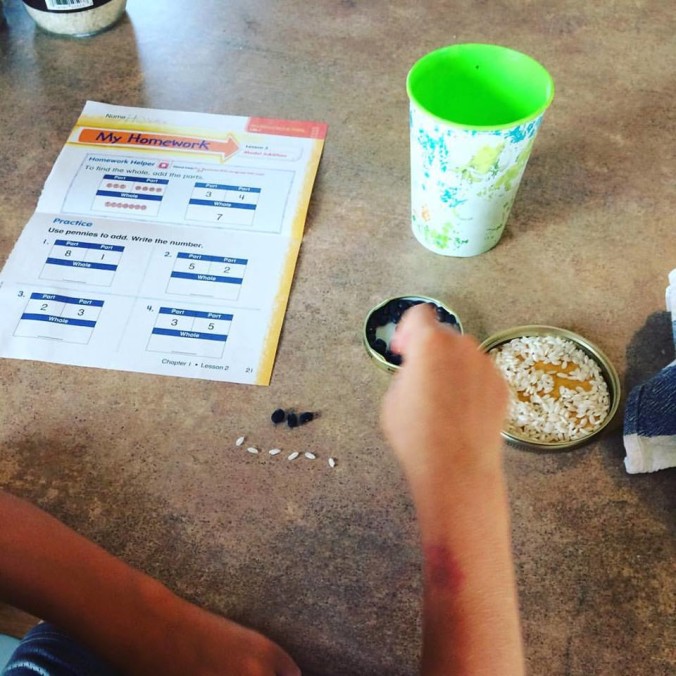While at the lake, the young boys contemplated fun things to do that didn’t involve screens. Now one to contribute, my eldest offered, “I had math homework. That’s fun!”
Part of me is so very proud. This will put me in a top-notch nursing home someday. Upscale with organic applesauce and fair trade decaf coffee. Only the best and (most expensive) for this genius’ dear mama.
The honest part of me will say it scares me. If you’ve had a child, sibling or even a dog, I think you know the feeling. A sense of wondering, will he be included? As his mother, I love him in a particular and all-encompassing kind of way. I’m aware the rest of the world doesn’t have such thick ties – they’re free to love their favorite parts and tease about the rest, which is terrorizing.
We want our children to be loved and accepted. This is why we buy Under Armor, yes? Those little 10-year-old bodies don’t need power-wicking and compression. We’re buying a Sense of Enough because we desperately want them to be enough. To be included. Whether or not we had a place there, we want our kids to sit at the Cool Kids Table.
Except, I would argue, we actually don’t. We just think we do. Most of us don’t want to make cool the ultimate goal – it’s simply the most visible one. If other kids are flocking to your kid, then your kid must be someone good, right?
We mistake popularity for connection. I think perhaps when we say we hope for our children to be “included” what we really wish is for them to be known and loved for themselves. We want them to have friends who appreciate and honor them. We want them to feel the connection we have with our closest friends, families and partners. (Or that which we wish we had.)
The easiest and most readily-available solution is to help them become what is likable. There’s a profile out there (one, I would say, that is much more rigorous for young girls, but that is another post). Depending on your context you have to put in the ingredients for the right amount of brains (but not too nerdy), athleticism (in our parts, there’s never too much of this), good looks (but not to the point of vanity) and charm. When we succeed at this potion, society readily responds by asking other children seek out this prototype.
I absolutely love that I’m raising a little nerd. I think it’s cute and inspiring. I don’t want him to change – to love math less, to care if his clothes match more. But I do want him to be accepted. To be valued. True friends will do this, I know.
The easiest thing to do is ask him to be like everyone else. The risk of hurt and rejection seems slender when there’s less differentiation. As usual, I’m not in this for easy – I want the good. But I’ll be honest… living my values is hard, especially when my kid’s childhood is on the table. What if I’m wrong? What if these values aren’t worth it? What if the hurt he feels when he’s not popular leads him to other, less desirable ends?
I tell you folks, this parenting gig – it’s not for the faint of heart. Especially when you’re trying to change the world at the same time.
